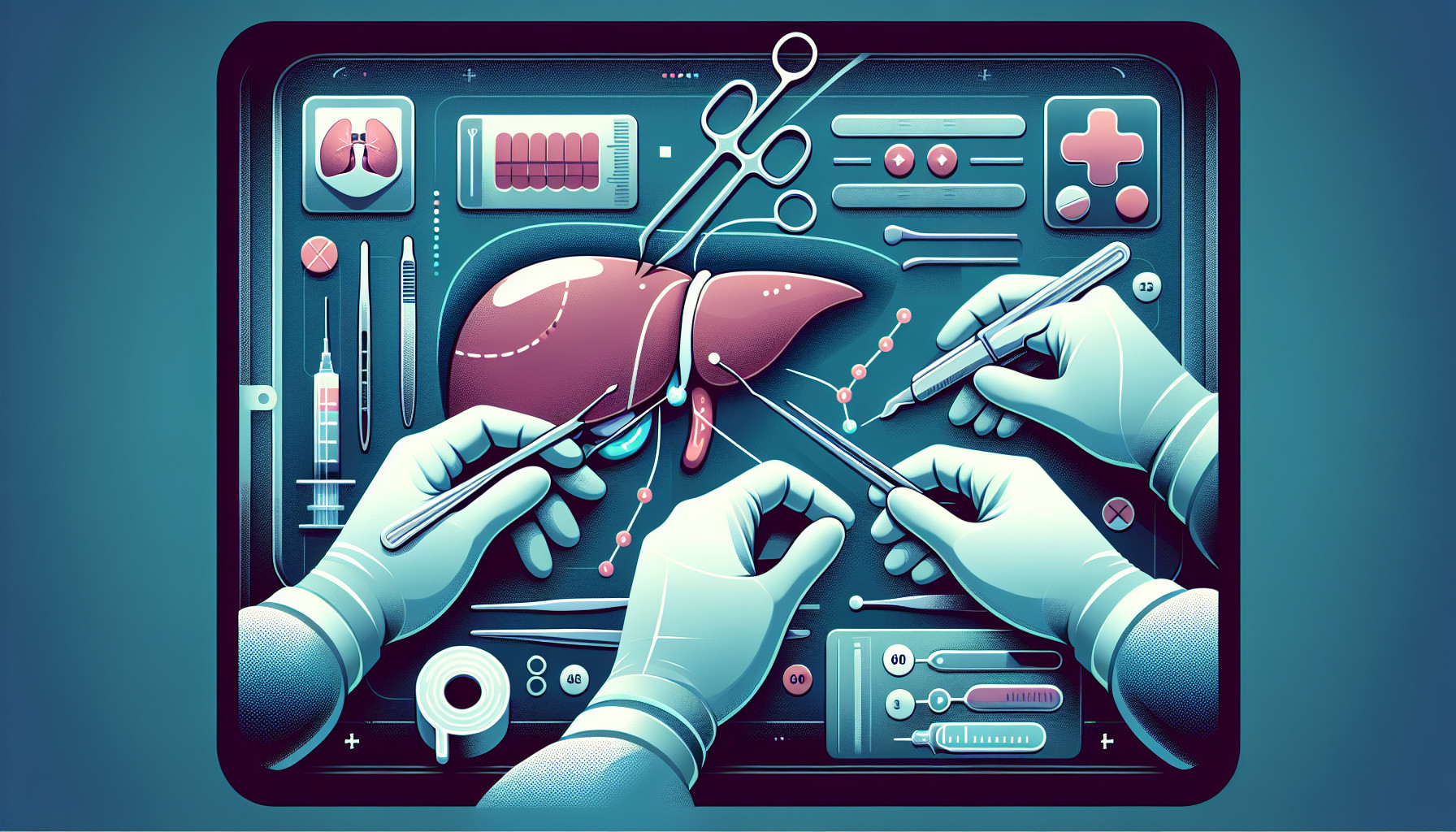Our Summary
The research paper discusses a study that was conducted to investigate the safety and effectiveness of a procedure called Transjugular liver biopsy (TJLB) in children. TJLB is a method often used in adults to extract a sample of liver tissue when the standard procedure, called percutaneous liver biopsy (PLB), is not suitable due to medical reasons.
In this study, they performed the TJLB procedure on 23 children and teenagers, some under general anesthesia and some under intravenous sedation. The reasons why the standard PLB procedure was not used varied, but most commonly it was due to an increased risk of bleeding (indicated by elevated prothrombin time/ international normalized ratio or low platelet count) or the presence of excess fluid in the abdomen (ascites).
The results showed that the TJLB procedure was successful in obtaining a sufficient sample of liver tissue in almost all cases (95.8%) and there were no major complications. Importantly, in over a third of cases (37.5%), the biopsy led to a new diagnosis. In over half of the cases (58.34%), it confirmed the initial diagnosis and in four cases, it provided extra information that helped guide treatment and predict the likely course of the disease.
In conclusion, the study suggests that TJLB is a safe and beneficial procedure for children when the standard liver biopsy procedure is not suitable.
FAQs
- What is a transjugular liver biopsy (TJLB) and when is it used in pediatric patients?
- What are the contraindications for a percutaneous liver biopsy (PLB) in children?
- What were the success rate and complications of TJLB in the study?
Doctor’s Tip
One helpful tip a doctor might tell a patient about liver biopsy is to follow all pre-procedure instructions provided by the healthcare team, which may include fasting before the procedure and temporarily stopping certain medications. It is also important to inform the healthcare team about any allergies or medical conditions before the procedure. After the biopsy, it is important to rest and avoid heavy lifting or strenuous activity for a few days to allow the liver to heal properly. If any unusual symptoms occur after the biopsy, such as severe pain, fever, or bleeding, the patient should contact their healthcare provider immediately.
Suitable For
Patients who are typically recommended for liver biopsy include those with:
- Elevated prothrombin time (PT)/international normalized ratio (INR) (> 1.5)
- Thrombocytopenia (< 60,000/dL)
- Significant ascites
- Suspected liver disease or abnormalities that require further evaluation
- Suspected liver tumors or masses
- Monitoring of liver disease progression or treatment effectiveness
These patients may have contraindications to percutaneous liver biopsy, such as coagulopathy or ascites, making transjugular liver biopsy a safer alternative.
Timeline
Before liver biopsy:
- Patient presents with symptoms or abnormal liver function tests.
- Patient undergoes a physical exam and medical history review.
- Imaging tests such as ultrasound or MRI may be performed to evaluate the liver.
- Blood tests are done to assess coagulation status and platelet count.
- Contraindications to percutaneous liver biopsy are identified, such as elevated prothrombin time or thrombocytopenia.
After liver biopsy:
- Patient is prepared for the transjugular liver biopsy procedure under general anesthesia or intravenous sedation.
- The biopsy is performed successfully with a high technical success rate and adequate tissue sample obtained.
- Post-procedure monitoring is conducted to detect any complications.
- A new diagnosis is established in some cases, while others confirm the initial diagnosis.
- Additional information from the biopsy may guide overall management and prognosis of the patient.
- Transjugular liver biopsy is shown to be a safe and useful procedure in children with contraindications to percutaneous liver biopsy.
What to Ask Your Doctor
- Why is a liver biopsy necessary for my condition?
- What are the potential risks and complications associated with a liver biopsy?
- How will the biopsy be performed in my case (transjugular vs percutaneous)?
- What should I expect during and after the procedure?
- How long will it take to get the results of the biopsy?
- Will the biopsy results change my treatment plan?
- Are there any specific instructions I need to follow before or after the biopsy?
- Will I need to take any medications before or after the biopsy?
- How often will I need to have follow-up appointments after the biopsy?
- Are there any alternative diagnostic tests or procedures that could be considered instead of a liver biopsy?
Reference
Authors: Maji P, Malik R, Madhusudhan KS, Sharma S. Journal: Indian J Pediatr. 2021 Jul;88(7):709-711. doi: 10.1007/s12098-020-03650-z. Epub 2021 Feb 2. PMID: 33533007
